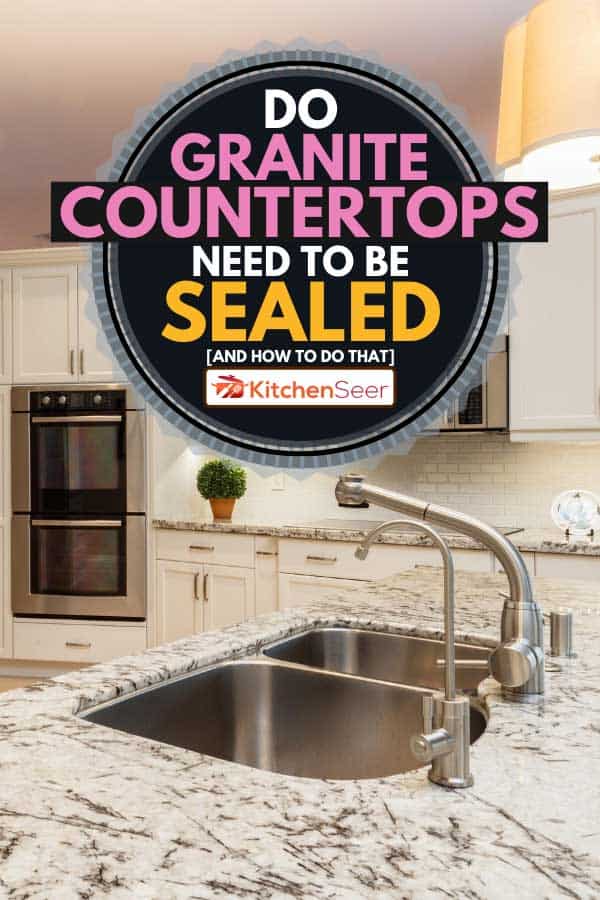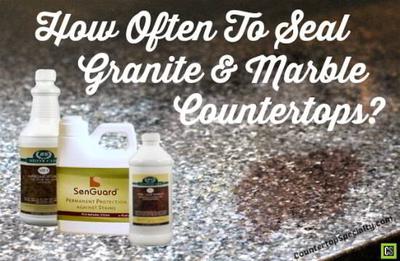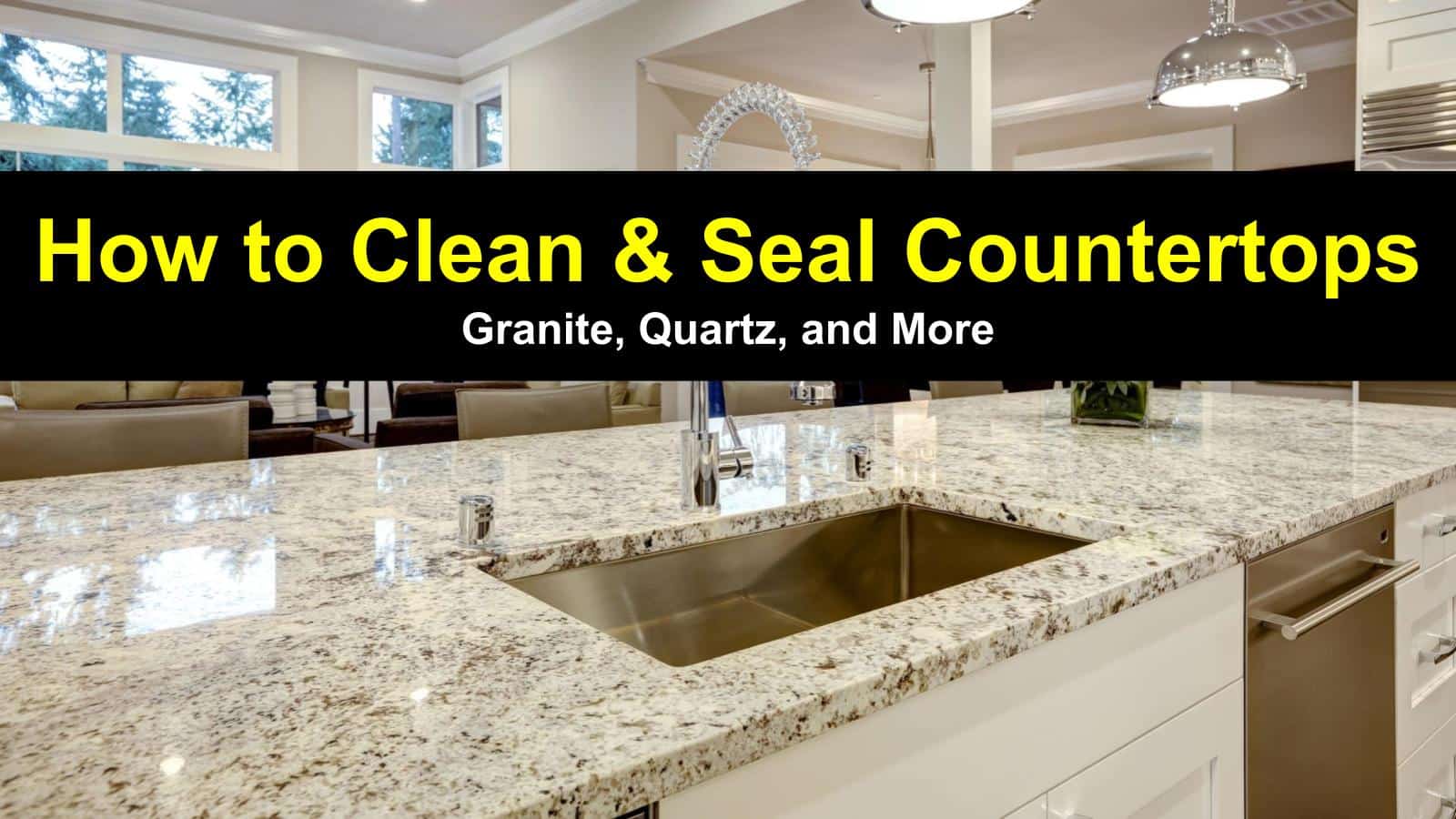How Often Do Granite Countertops Need to be Sealed?
Granite countertops generally need to be sealed every one to three years. However, the frequency of sealing can vary depending on several factors. The type of granite, the level of usage, and the specific sealant used are all factors that influence how often granite countertops need to be sealed.
Lighter-colored granites tend to be more porous and absorbent, requiring more frequent sealing compared to darker-colored granites. Additionally, if your kitchen experiences heavy usage, such as frequent cooking or spills, it is advisable to seal the countertops more frequently. High traffic areas are more prone to stains and damage, making regular sealing essential.
Regular inspections are also crucial in determining when resealing is necessary. Performing a simple water test can help determine if the seal is intact. If water is absorbed rather than beading up on the surface, it may be time to reseal the countertops. By following these guidelines and considering the specific needs of your granite countertops, you can ensure they remain well-protected and maintain their beauty and durability for years to come.

Below are factors that determine the frequency of sealing granite countertops and provide some practical tips for maintaining their longevity.
Granite is a natural stone that is formed deep within the Earth’s crust. It is composed of various minerals, including quartz, feldspar, and mica, which give it its unique appearance. Granite countertops are highly resistant to scratches, heat, and staining, making them a valuable addition to any kitchen.
While granite is naturally resistant to many elements, it is not entirely impervious to damage. Sealing granite countertops helps protect the stone from stains, oil, and water penetration, enhancing its longevity and maintaining its original shine.

When granite countertops are initially installed, they are typically sealed by the fabricator or installer. This initial seal acts as a protective barrier against potential damage during transportation and installation. However, it is essential to continue regular maintenance to ensure the seal remains intact.
The frequency of sealing granite countertops depends on several factors, including the type of granite, the level of usage, and the specific sealant used. Lighter-colored granites may require more frequent sealing, as they tend to be more porous and absorbent.
To determine whether your granite countertops need resealing, you can perform a simple water test. Apply a small amount of water on the surface and observe if it beads up or gets absorbed. If the water is absorbed, it may be time to reseal the countertops.
As a general rule, it is recommended to seal granite countertops every one to three years. However, this timeframe can vary based on the factors mentioned earlier. Regularly inspecting the countertops for signs of wear or damage can help determine when resealing is necessary.

If your kitchen experiences heavy usage, such as frequent cooking or spills, it is advisable to seal your granite countertops more frequently. High traffic areas are more prone to stains and damage, making regular sealing essential.
While some homeowners choose to seal their granite countertops themselves, professional sealing offers several advantages. Professionals have the knowledge, expertise, and high-quality sealants to ensure a proper and long-lasting seal.
Proper cleaning and regular maintenance play a crucial role in prolonging the lifespan of your granite countertops. Avoid using abrasive cleaners or scrub brushes and opt for pH-neutral cleaners specifically designed for granite surfaces.
Before sealing, it is essential to clean the countertops thoroughly and ensure they are free from any residue or stains. A clean surface allows the sealant to bond effectively with the stone, providing maximum protection.

There are various sealant options available for granite countertops, including penetrating sealers, topical sealers, and enhancing sealers. Consult with professionals or refer to the manufacturer’s recommendations to determine the most suitable sealant for your specific granite type.
The process of sealing granite countertops typically involves applying the sealant evenly across the surface, allowing it to penetrate the stone, and then wiping off any excess. Follow the instructions provided by the sealant manufacturer for best results.
To maintain the quality of your sealed granite countertops, avoid placing hot pots or pans directly on the surface. Use trivets or heat-resistant pads to protect the stone from thermal shock.
Even with regular sealing, it is essential to inspect your granite countertops periodically. Look for signs of wear, such as discoloration or dullness, and address any issues promptly to prevent further damage.
The Water Test: Know If You Need To Seal Your Granite Countertops
![]()
Easy Ways to Clean Granite Countertops u0026 More

Related articles:
- Black Pearl Granite Countertops
- Black Matte Granite Countertop
- Black Granite Kitchen Countertops
- Cutting Granite Countertops DIY
- Gray Granite Countertops
- Blue Gray Granite Countertops
- Granite Countertops Wood Island
- Backsplash Ideas For Granite Countertops
- Black Granite Countertops In Kitchen
- Affordable Granite Countertops